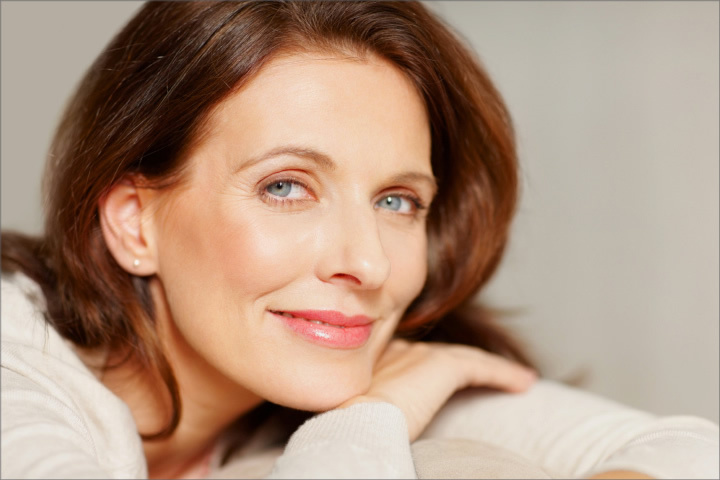
Anti-Aging Skin Treatments: What Really Works?
There's no such thing as a miracle in a jar, but many of today's anti-aging products do move past the hype and turn back the clock just a smidge. And because beauty isn't only skin deep, experts point out that what we put inside our bodies counts nearly as much toward a younger look as what we slather on the outside.
Advertisements touting the benefits of age-reducing creams, lotions and other potions prey on the apparent social mandate to look younger longer, according to Laurie Neronha, an esthetician in private practice in Providence, R.I.
But do they deliver what they promise? Yes and no, she says.
"There's a lot of money to be made from people's fear of aging," Neronha said. "But you cannot stop the aging process you can only manage it."
Skin treatments that work
A big part of that is using what the American Academy of Dermatology (AAD) describes as by far the most beneficial, age-busting product available: sunscreen. Without a daily skin regimen that includes copious amounts of sunscreen (SPF 30 or higher) on all sun-exposed skin, no other anti-aging products matter, Neronha said.
While sunscreen prevents damage, other products can fight the wrinkles, sagging and brown spots that aging skin may already have. Some research-proven ingredients to look for include:
- RetinolSkin care professionals consider this form of Vitamin A the gold standard of effective topical treatments. Also available as prescription strength Retin-A, retinol is an ingredient in myriad over-the-counter products. It ramps up cell turnover in the top layers of the skin, decreasing wrinkles and improving skin tone, according to Neronha.
- PeptidesThese chains of amino acids act as signaling molecules in cells, telling them to heal, renew and slough away. One of the better-known peptides is argireline, also known as Matrixyl, which softens crow's feet by slowing the contraction of tiny muscles around the eyes, Neronha said.
- AntioxidantsFighting cell damage from free radicals, which are produced when skin is exposed to sunlight and some chemicals, antioxidants can make skin firmer and more radiant, according to Neronha. Wear them, eat them and drink them, experts say. They are available in topical creams with extracts of ingredients such as green tea and pomegranate. Many foods, especially fresh produce and beverages such as fruit juice and various varieties of tea, also contain antioxidants.
- Alpha hydroxyl acids (AHAs)These compounds, which include glycolic, lactic, citric and mandelic acids, can help peel away the top layers of the skin to erase fine lines, Neronha said. AHAs are available in both OTC and prescription strengths.
- EstrogenAvailable in prescription-strength estriol, the hormone helps maintain skin firmness, said Dr. Pamela Smith, a diplomat of the American Academy of Anti-Aging Physicians and an adjunct faculty member at the University of South Florida School of Medicine in Tampa. Studies show it decreases pore size and depth, she added.
Anti-aging products to avoid
Some ingredients in anti-aging products should be avoided, experts say. These include:
- Petroleum-based productsCompounds such as mineral oil, paraffin and propylene glycol are commonly found in beauty creams. But while they may temporarily soften skin, these substances also plug up pores, preventing skin from breathing and detoxifying, Smith said.
- SulfatesChemicals such as sodium laureth sulfate (SLES) and sodium lauryl sulfate (SLS) dry out skin and hair, according to Smith.
When it comes to applying anti-aging products, it's not always better to apply more. Each product should be used as directed on the packaging, according to the AAD.
"Some products contain active ingredients that do more harm than good when too much is used," according to the AAD. "Applying more than directed can cause clogged pores , a blotchy complexion, or other unwanted effects."
Both Smith and Neronha recommend identifying your No. 1 skin concern and buying products that target just that, at least to start. They also advise seeing a dermatologist or esthetician for a truly custom approach to anti-aging.
"I don't recommend all-in-one products," Neronha said. "They're OK, but chances are there are so many ingredients in them that concentrations of each won't be very high and they'll cancel each other out. I think people waste a lot of money cherry-picking products and don't get the cherry pie they're looking for."
And remember to drink plenty of water and to eat healthy fats, such asomega-3 fatty acids , both of which contribute to a dewier complexion, according to experts. Other healthy lifestyle choices, such as engaging in regular exercise and not smoking, are also reflected on our faces, Neronha said.
"Diet and exercise are invaluable to healthy skin," she said. "If you're not well, your skin won't be well."

 English
English
